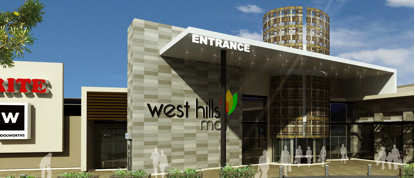A real estate boom is a natural byproduct of emerging market growth via rapid urbanization and expanding middle classes. As growth moderates, particularly as seen in Asian markets, the rate of construction activity remains rapid, according to the PWC report “Real Estate 2020”, only boosting investment opportunities. The report notes that, by 2025, over 60 percent of all construction activity is forecasted to take place in emerging markets up from just 35 percent in 2005, with sub-Saharan Africa trailing only emerging Asia.
The commercial sub-sector of the real estate inudustry provides great opportunity for returns as Africa’s economic boom is sustained. Of the near 23 million m2 in shopping malls in Africa, 21 million m2 sits in South Africa and 0.5 million m2 is in sub-Saharan Africa (excluding South Africa). Similar figures are found in the office space subsector – 2 million m2 in sub-Saharan Africa (excluding South Africa) as compared to 4 million m2 in North Africa and 15 million m2 in South Africa. Navigating a blank slate in many instances, real estate investors approach the continent with the mixed ambition of Michelangelo and Donald Trump. Yet, as any veteran real estate investor will characterizes the “Africa opportunity”, commercial real estate can surely earn north of 25 percent per annum returns, but only after navigating unexpected hurdles, including poor urban planning, unfinished neighbouring infrastructure (i.e., unpaved roads), and unreliable local developers. If you can stomach the risk and find the right partners, these five countries offer the greatest opportunity:
Nigeria
On the surface, Nigeria is the real estate investor’s dream canvass. It is Africa’s second largest economy (soon-to-be first by many accounts) with burgeoning middle class. Its 170 million-plus population loves to shop and consume. As companies flood the market, office space is lacking, such that prime office space rents as high as $85 per square meter, according to local renters.
The Ikeja City Mall, a 28,522 square metre mall in Lagos, which was backed by London-based private equity firm Actis in 2011, is unofficially considered the second mall to open in the country. Numerous malls have opened throughout the country since 2011. Even the recent boon in commercial space might not meet Nigeria’s rapidly growing demand.
Still, investors must approach with caution. Corruption and regulatory ordeals come without warning. Joining with a strong local partner is accordingly necessary to avoid the downward spiraling effect of a reactionary approach amongst unexpected obstacles you can assume to come.
Kenya
The growth of Kenya’s middle class and the country’s robust economy bids well for commercial real estate. The country may not see the same growth in malls experienced in South Africa. But the country is starting to hit a similar trajectory as economic growth projects well for the long term and tourism finds its footing again after the Westgate Mall terror attack. Office rents have moderated as office space supply, as reported in Kenya’s the Star, will exceed demand by 2016. But, as one local investor characterized it, building malls surpasses office spaces on the investor’s profitability meter based on Kenyan spending and natural returns per annum that follow from it.
Angola
Often loss in the discussion of burgeoning economies is oil giant Angola. A growing middle (and upper) class in Luanda makes the country an attractive hub for commercial real estate investors. As oil prices stay high, global companies flock to the country to capture a piece of the consumer market. Data on office space remains opaque but local developers estimate that rents for prime office space goes as high $100 per square meter.
The growing pockets (and expanding tastes) of Angolan have sprouted new malls with luxury occupants. The Sky Gallery, scheduled to open in June, will include Prada, Armani, and Gucci brands among many others. Once the mall reaches full occupation, the total cost of the project could exceed $85 million, according to those closely associated with the project. Investors warn, however, that these success stories should not obscure the ‘true’ challenge in Angola of finding a dependable and capable developer who can navigate the country’s ‘unclear’ property laws.
Tanzania
Offshore natural gas and a growing middle class underscores the changing real estate landscape in Tanzania and the country’s global reputation. Yet, as a country on U.S. President’s Barack Obama’s Africa tour, hotel supply barely met demand. The situation will gradually worsen as the gas comes out of the ground.
Prime office space rents as high as $45 per square meter and new businesses are starting to arrive, so expect the price to increase. Accompanying high class apartments and condominiums for executives operating in these new facilities rent out as high as $8,000 per month. Rapid urbanization in Dar es Salaam and improved infrastructure has gradually created fertile ground for commercial property. Still a relatively new concept, local investors predict a rapid boon in a high rise commercial headquarters and multi-story malls in the near term.
Ghana
Prime office space in Ghana may be of interest to real estate investors, as rent go as high as $50 per square meter. But it is not office space that has real estate investors giddy. One single mall dominates the discussion in Ghana. The Accra Mall, which reportedly attracts nearly 4 million visitors per year, is so busy that locals suggest carpooling to the mall on weekends as parking is limited. The West Hills Mall, which would be completed by the end of the year, should relieve congestion at the Accra Mall. But, if real estate investors are only partly correct in their projections, both malls will be clogged on the weekends and a third mall will ‘supposedly’ be required to ease the congestion.








